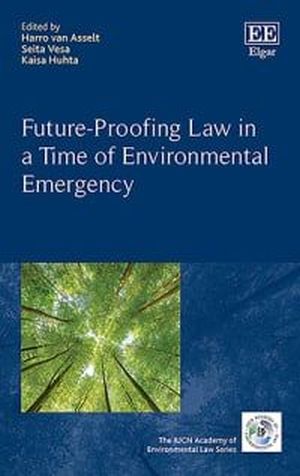
This prescient book examines the future-proofing of environmental law to allow legislation to anticipate and adapt to long term challenges. Leading and emerging experts discuss the extent to which law is fit for purpose in the face of environmental emergencies and associated scientific, socio-economic and political uncertainties.
Providing global insights into the debates surrounding the future-proofing of environmental law, contributors critically analyse law’s reactive tendencies and reflect on pathways towards legal resilience. Chapters outline theoretical approaches, practical solutions and novel directions for future-proofing. These are illustrated by case studies exploring areas such as the Indus Waters Treaty, administrative sanctions of Chinese emissions trading schemes and the role of international law in addressing plastics pollution.
Students and scholars of environmental law and public international law will greatly benefit from this forward-thinking book. It is also a vital resource for policymakers and legal professionals in developmental and environmental law.